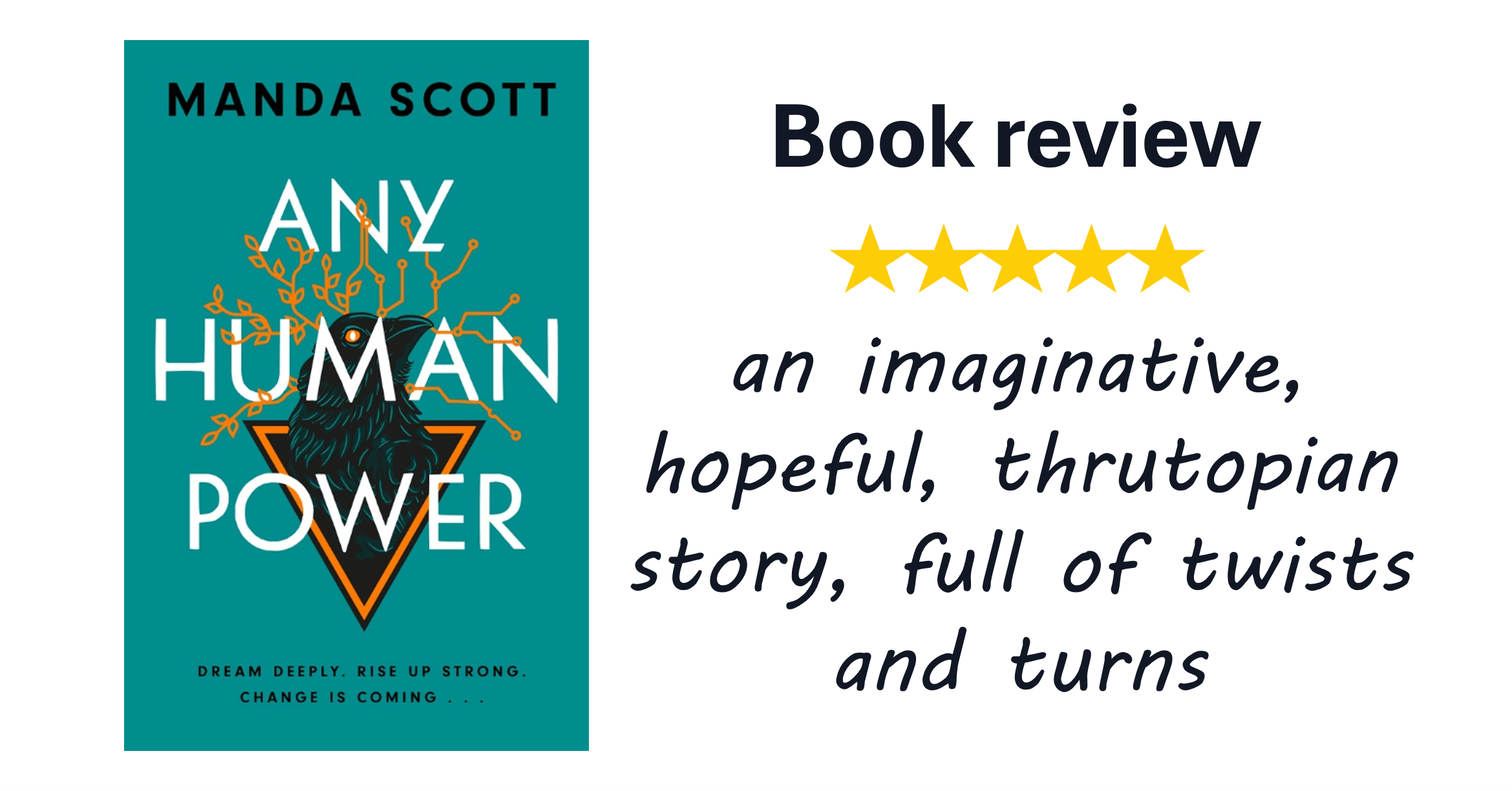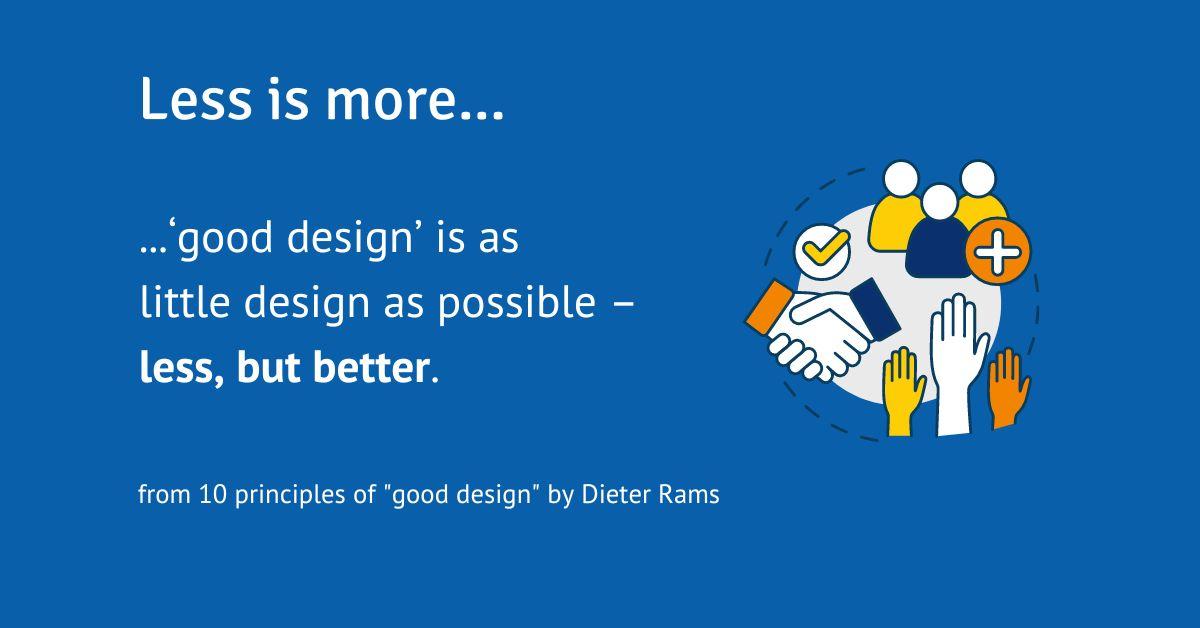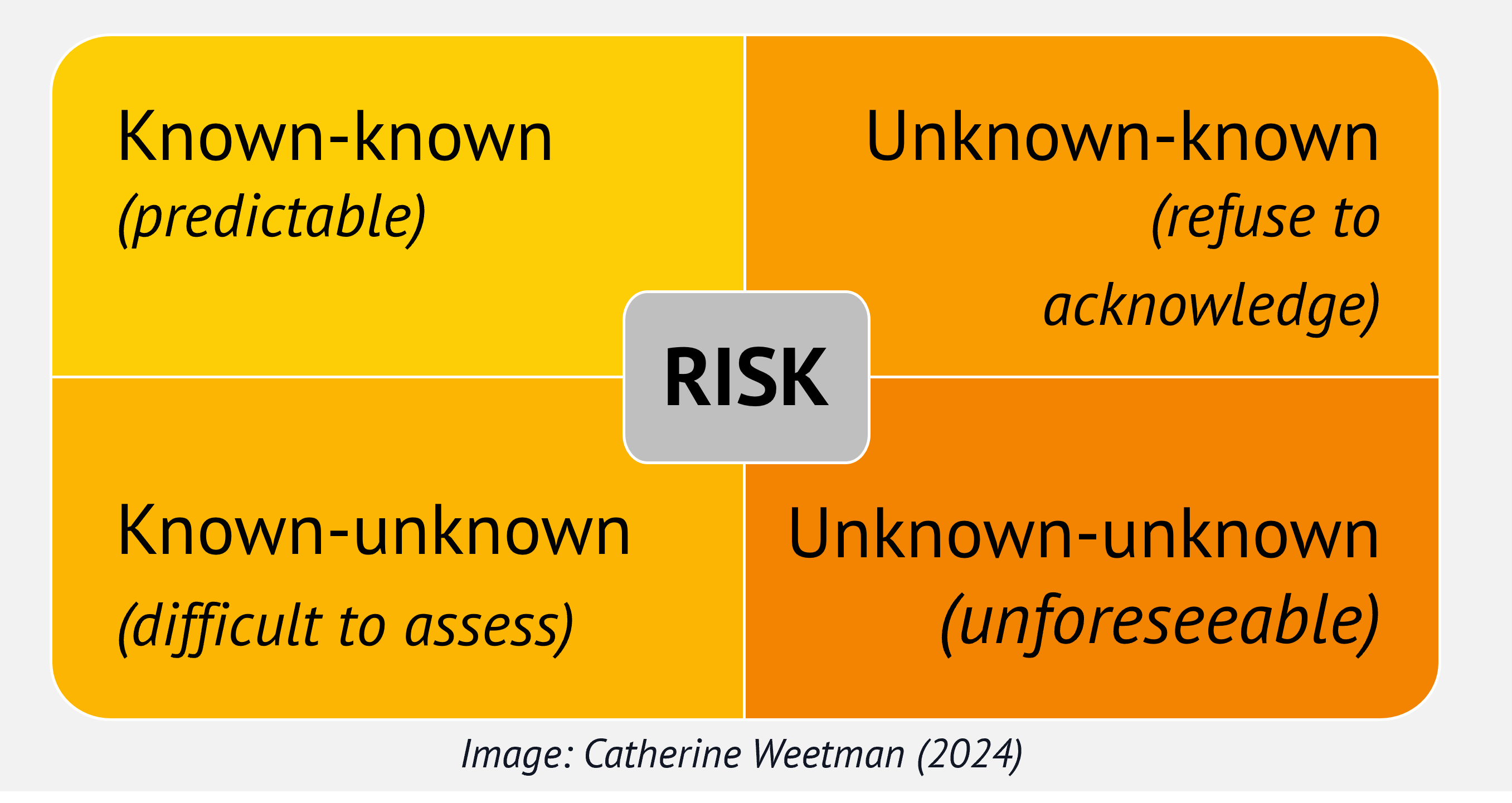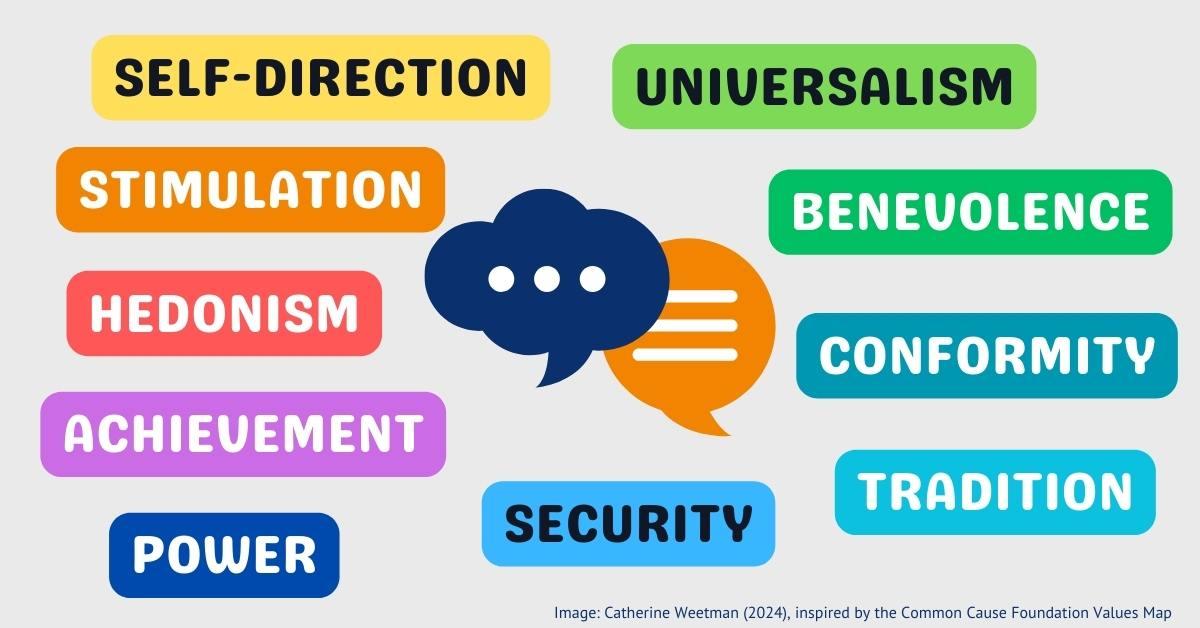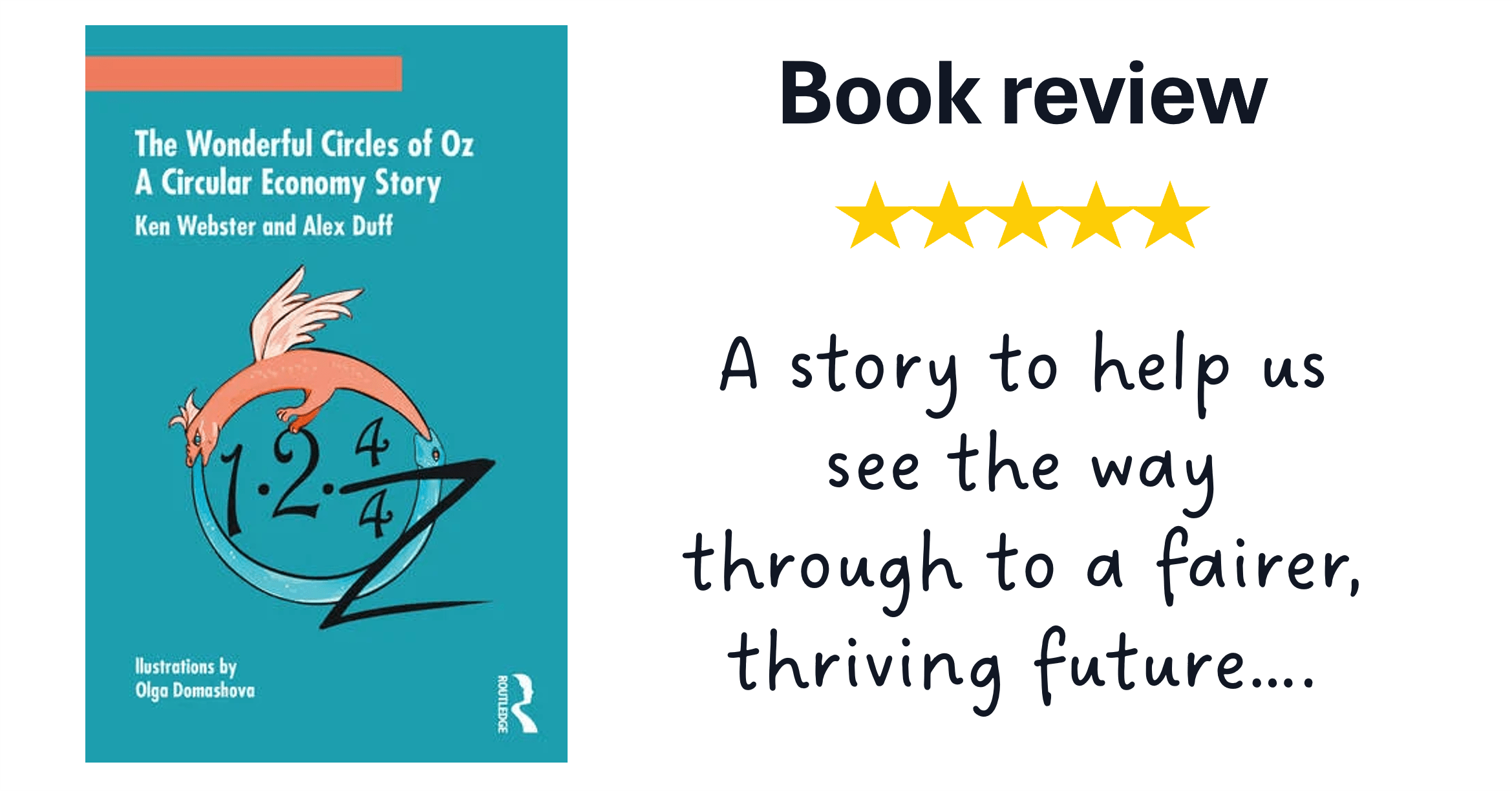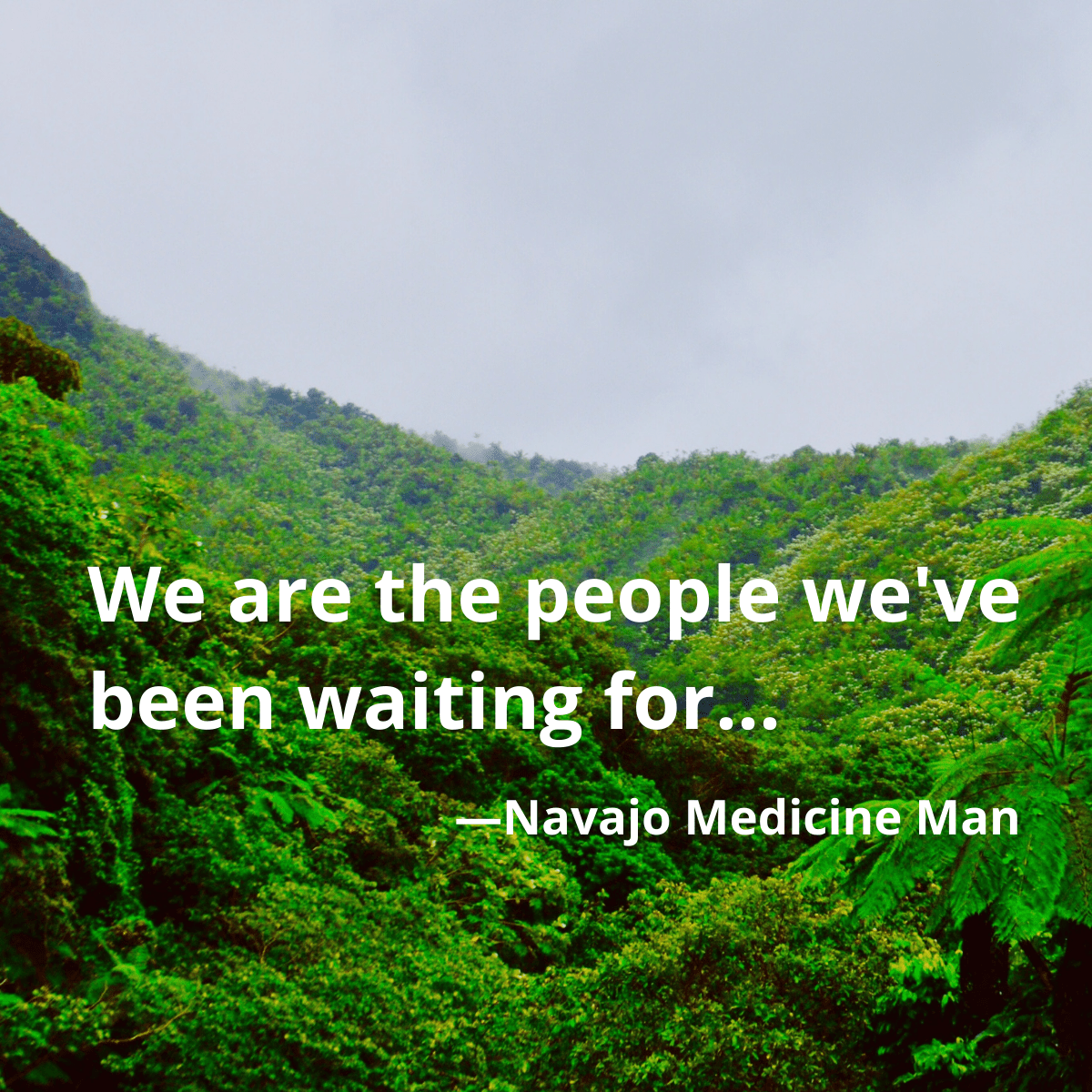Millions of us are dreaming of a brighter future, and a healthier fairer, thriving world. And yet, we are held back, by those who want us to keep believing the false promises of consumerism. It’s time to break free, to choose a better way: a Giant Leap towards sustainable, prosperous and equitable wellbeing for all.
7 minute read
“The real act of discovery consists not in finding new lands, but in seeing with new eyes.” Marcel Proust
You, I and many others can easily imagine how regenerative, circular and ‘doughnut’ economic systems would create so much more value for all, with far less pollution and harm.
And yet, our visions and ideas are often dismissed as utopian. We’re told to ‘get real’ – in other words, keep quiet and carry on with business-as-usual. Why aren’t we turning the tables on those naysayers? How realistic are their plans for a better future? How does more extraction, exploitation, extinction and emissions help humanity? The impacts are impossible to ignore. It’s clear that take, make, waste just doesn’t stack up.
A recent article by ecological economist Robert Constanza, published by Earth4All, is a call to action for all of us. We can co-create a world where we have enough, for everyone. It’s time to choose a different path, to re-think how we live, work and travel.
Why are we going along with the fallacy that says ‘business as usual’ is a viable option? Even choosing ‘more sustainable’ (AKA ‘a bit less bad’) strategies won’t help.
All around the world, organisations and community groups are imagining and enabling a world in which we do better, with much less. For starters, as Constanza points out, to build a better world, we should stop chasing economic growth.
Doing better, with less
For businesses, that means rethinking business models and strategies, aiming to slow down production and consumption whilst providing products and services that are affordable, accessible and acceptable – socially, ethically and environmentally.
Circular and regenerative businesses are developing profitable new services to help keep things in use for longer, find ways to make fewer things available to more users, and to design systems that recover end-of-use objects so they can be revived for another cycle. (You might like the R-ladder as a guide for design priorities, available on the European Union’s Circular Economy platform.)
Not only are these circular and regenerative solutions healthier, more enjoyable and fulfilling for each of us, they are better for our living planet, and our communities.
Rethinking strategies to do better, with less, opens new ways for businesses in every sector to prosper. every day, I see successful, disruptive businesses using circular solutions to create a ‘sweet spot’ where sustainability and stakeholder value come together. So far though, most of the reimagining is coming from startups, not established businesses, which seem to be stuck in ‘incremental improvement’ mindsets.
This is urgent
If we dare to read the news, it’s clear to see that our social, climate and biodiversity crises are already affecting millions of people around the world, and things are set to get even worse. Are we acting decisively to make system-scale changes? No. Collectively, we’re looking away, instead of tackling the existential challenges we face.
This week brought another stark reminder that we must act today. In January 2024, global warming exceeded 1.5°C above pre-industrial levels across an entire year for the first time. We’ve already breached six of the nine sustainable planetary boundaries (for biodiversity loss; climate, freshwater and land-system change; biogeochemical flows; and novel entities), risking irreversible changes to the stability of our life-support systems.
Now, we have wars, rising inequality and would-be dictators looking to overturn democracy in many countries. The elites are funding politicians and think tanks, lobbying to keep the current system limping along. Even before the pandemic’s wealth shift, Oxfam pointed out that just eight individuals owned more than the poorest 50% of the world’s population. Since then, the top 1% have captured nearly two-thirds of the $42 trillion in newly-created wealth – almost double the amount gained over the same period by the remaining 99% of humanity.
It’s easy to feel disheartened, but we all can use our imaginative superpower to find pathways to a better world. Every tiny step forward fuels our hope and motivation. Inspired by Rear Admiral James Stockdale, who endured being a prison of war for seven years, business author Jim Collins highlights that great companies embrace the Stockdale Paradox: confronting the brutal facts and yet unwavering in your faith that, regardless of the difficulties, you’ll prevail in the end.
People under pressure
You’ve probably been shocked to hear that even in well-off countries, people don’t have enough to pay for the essentials, and millions are having to choose eating or heating.
Even if we’re lucky enough not to be worrying about our financial wellbeing, more and more of us are feeling under pressure. Whether we’re pushing for a fairer, sustainable world or trying to ignore the looming risks, increasing numbers of people are suffering from burnout, stress and anxiety.
Researchers are showing how the unrelenting pressure to consume also harms our wellbeing. The largest known UK study of stress levels, from just before the pandemic, found that three-quarters of the population had experienced high levels of stress, related to root causes like debt, housing, comparing ourselves to others, and the pressure to succeed.
Wellbeing for all
And yet, I’m seeing plenty of hopeful signs. Priorities are changing, and more of us are stepping off the ‘work, buy, consume, die’ treadmill of consumption driven by exploitative capitalism. Constanza highlights the Well-Being Alliance and The Well-Being Economy Governments group (WEGo – currently Scotland, New Zealand, Wales, Finland, Canada and Iceland) amongst the organisations pushing for a new economic system – going beyond growth and focusing on fairness, well-being and sustainable prosperity – a world where humans can live well on a thriving planet.
The Club Of Rome’s Earth4All model has two contrasting scenarios: business as usual (‘too little too late’) and the Giant Leap. Business as usual leads to a world of decreased wellbeing, whilst the Giant Leap scenario ‘fundamentally reconfigures our economies, energy and food systems so that they work for both people and the planet’.
Five extraordinary turnarounds
Earth4All sets out ‘five extraordinary turnarounds’ for policymakers, focusing on renewable energy, regenerative food, reducing inequality, eliminating poverty and enabling empowerment, enabling wellbeing on a relatively stable planet. As Constanza notes, ‘investing in these five areas could ensure sustainable, prosperous and equitable wellbeing for humans and the rest of nature.’
Constanza joined with leading thinkers like Timothée Parrique, Kate Raworth, Jason Hickel, Tim Jackson, Giorgios Kallis and hundreds of others, signing an open letter to offer policy suggestions that go ‘Beyond Growth’. They set out four main principles:
- Biocapacity: phasing out fossil fuels; limiting raw material extraction; nature protection and restoration measures for healthy and resilient soils, forests, marine and other ecosystems.
- Fairness: policies to foster a more equal society by eradicating income and wealth extremes, including ‘super-profits’. For example, a carbon wealth tax; setting minimum and maximum incomes.
- Wellbeing for all: secure access to essential infrastructures through an improved, ecologically sensitive welfare state. For example, Universal Basic Services (such as rights to health, transport, care, housing, education and social protection etc.), job guarantees, price controls for essential goods and services.
- Active democracy: citizen assemblies with mandates to design socially acceptable sufficiency strategies; strengthen policies based on ecological limits, fairness and wellbeing for all; a stronger role for trade unions.
Ken Webster, one of the editors of the Earth4 All book and a leading thinker on the circular economy, discusses some of the ideas for fairness, wellbeing and active democracy in Episode 119 of the Circular Economy Podcast.
The future is already here, it's just not widely distributed
It’s natural for us worry about change, especially when it might ask for sacrifices. But we’re being brainwashed – literally – into believing the false promises of ‘trickle down’ economics providing better lives for all. Every day, we are bombarded with messages that persuade us to see success as wealth, ambition and possessions, with marketers in every sector expertly hacking our brain chemicals to persuade us that more stuff makes us happier, likeable, and successful.
Governments and businesses are conditioned to want economic growth. To achieve that, we’re kept busy – distracted by entertainment, the news, the pressure of earning enough money to pay for those ‘essentials’ – together with the ‘extras’ we’re assured will make us socially acceptable. It’s exhausting, and it leaves no room for what really matters in life.
How do we escape this manipulation, and the false promises of consumerism? Firstly, we can be inspired by Rear Admiral Stockdale: confronting the brutal facts and yet never losing faith that, no matter how hard this will be, you’ll get through it. Secondly, we can adopt what Julia Galef calls a ‘scout mindset’.
The Scout Mindset: Why Some People See Things Clearly and Others Don’t is a 2021 non-fiction book by Julia Galef. Galef defines the “scout mindset” as a style of thinking that is focused on earnestly seeking the truth, and contrasts it with the “soldier mindset”, which focuses on defending one’s existing beliefs. Read more: https://en.wikipedia.org/wiki/The_Scout_Mindset and https://juliagalef.com/
Ask better questions!
Asking ‘what if’ questions can help us get clear on the reality – that carrying on with business as usual is pushing us towards a cliff edge. And when we look around, we see lots of signals, showing that a different world is already thriving, and that more of us are dreaming our way towards it. As William Gibson said, “the future is already here, it’s just not widely distributed.”
Instead, we can use our choices to build the world we want. Whether we are buying, selling or setting policies, we can prioritise circular and regenerative approaches. We can step away from consuming, and instead, choose conversations, community and caring: for each other, for our home planet and for our stuff. What’s your dream for a future you can be proud of? And what first step can you take, today?
“Soon is not as good as now.” Seth Godin
Read more:
Robert Constanza, To build a better world, stop chasing economic growth (3 Jan 2024), Earth4All. Available from: https://earth4all.life/views/to-build-a-better-world-stop-chasing-economic-growth/
Earth for All: A Survival Guide for Humanity (2022). “This book details the findings of our initiative and details how we can steer humanity away from ecological and social catastrophe.’ Published in 9 languages, the book is a collaboration between the 21st century Transformational Economics Commission and systems analysts and modelling teams. Lead authors are Sandrine Dixson-Declève, Owen Gaffney, Jayati Ghosh, Jørgen Randers, Johan Rockström and Per Espen Stoknes. More information: https://earth4all.life/the-book/
Club of Rome member and researcher Gaya Herrington modelled the updates to the original Limits to Growth scenarios. Gaya talks about her book Five Insights for Avoiding Global Collapse, in Ep 189 of the Accidental Gods podcast: https://accidentalgods.life/five-insights-for-avoiding-global-collapse-with-gaya-herrington/
Catherine Weetman advises businesses, gives workshops & talks, and writes about the circular economy. Her award-winning Circular Economy Handbook explains the concept and practicalities, in plain English. It includes lots of real examples and tips on getting started.
To find out more about the circular economy, why not listen to Episode 1 of the Circular Economy Podcast, read our guide: What is the Circular Economy, or stay in touch to get the latest episode and insights, straight to your inbox…
